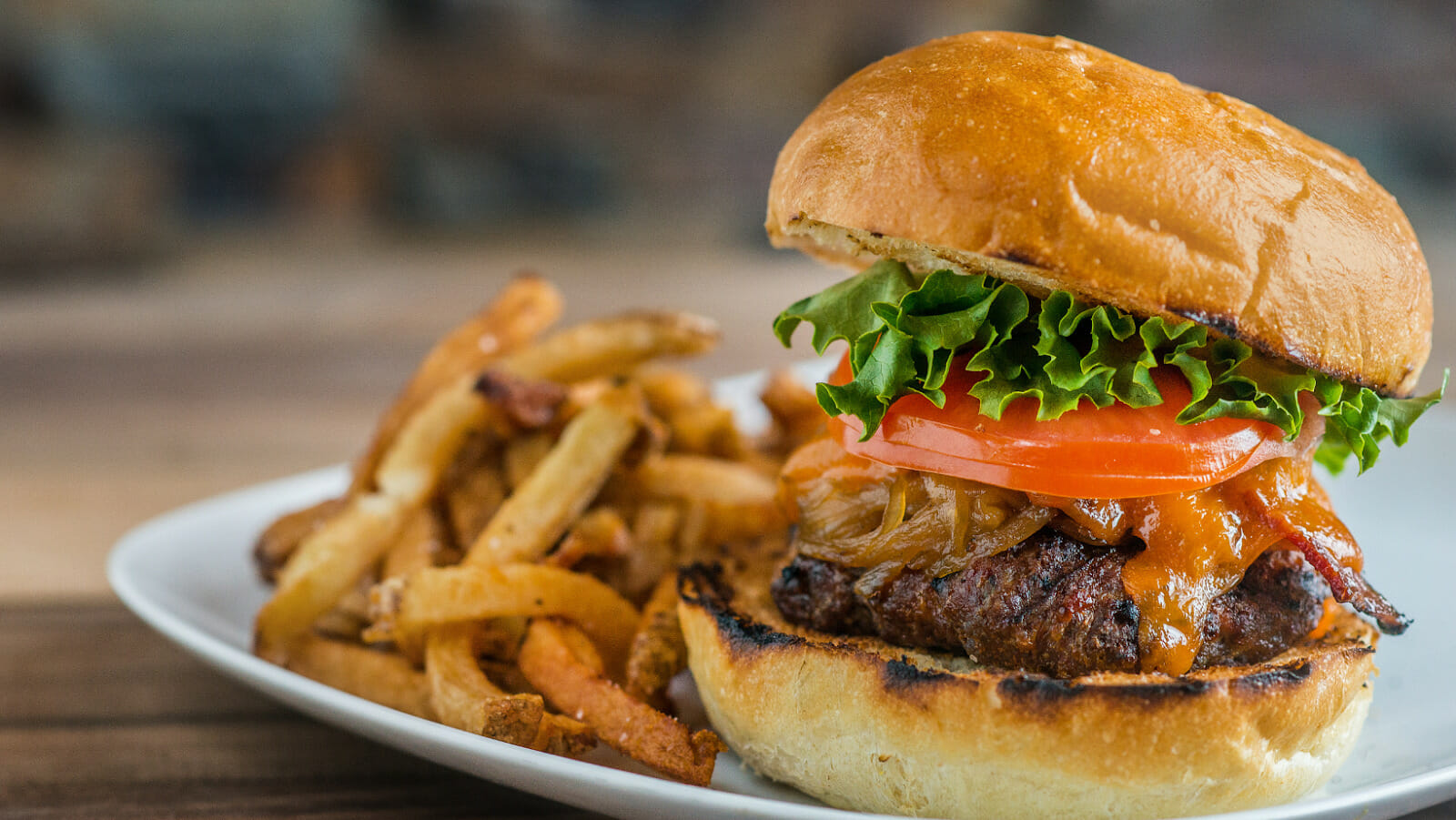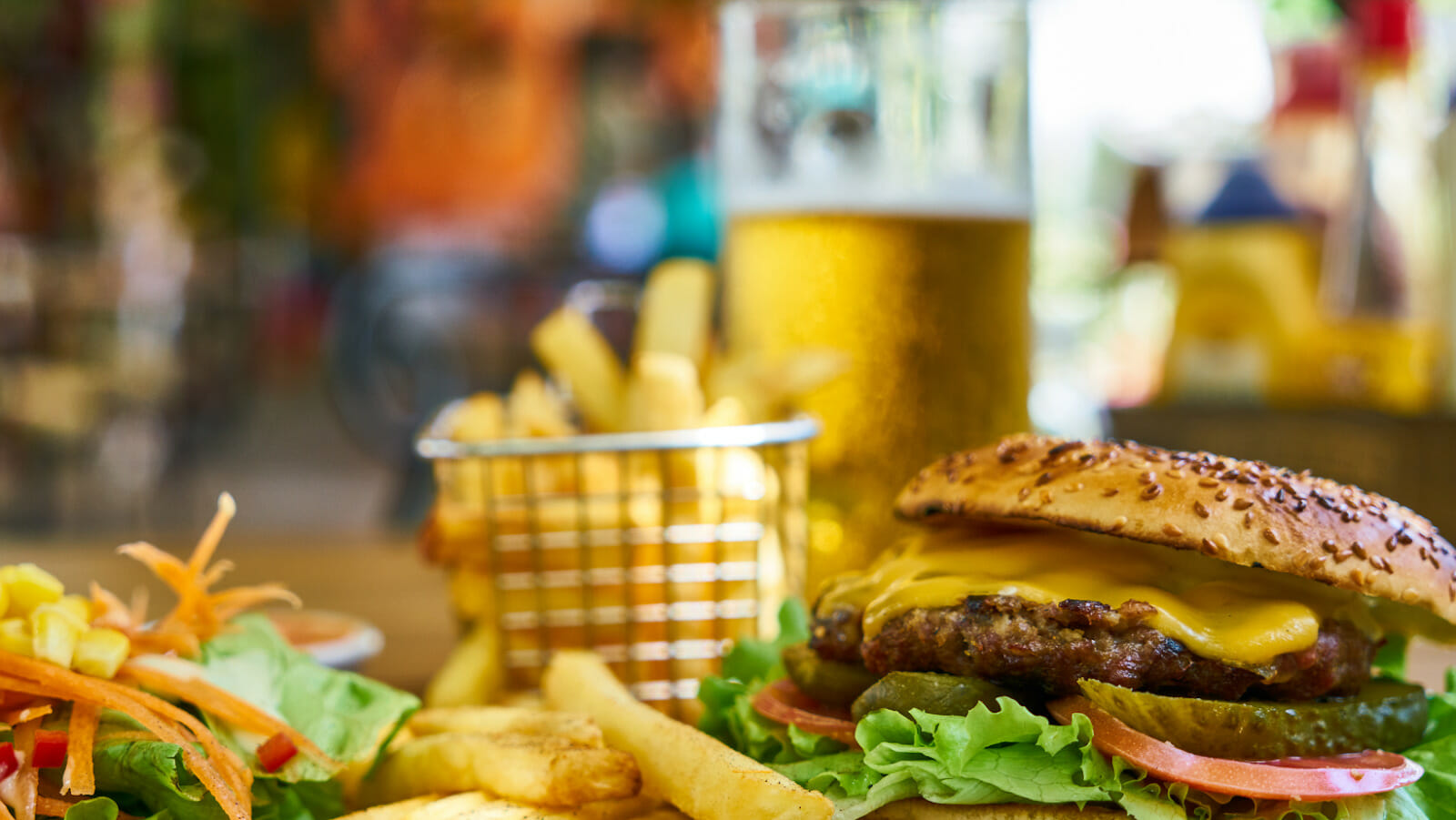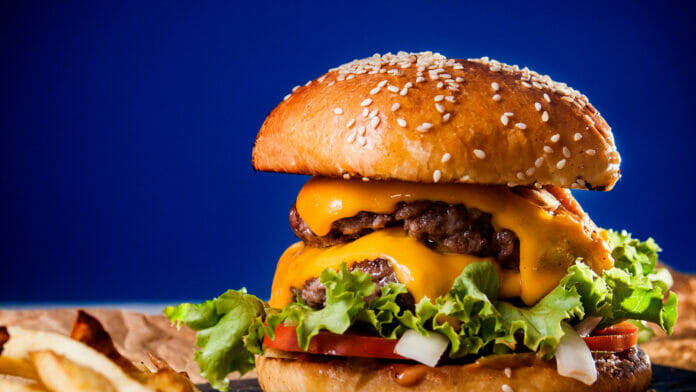How Many Calories in a Cheeseburger
Cheeseburgers can be a tasty and enjoyable meal, but it’s important to understand the nutrition facts before you indulge. Cheeseburgers, in particular, can be high in calories, fat, and sodium.
In this article, we’ll take a look at the nutrition facts of a cheeseburger and explore the health benefits and risks of consuming one.
Calories in a cheeseburger
A cheeseburger is a popular fast-food item that is loved by many, but it can also be a source of high calories and unhealthy fats.
| Nutrient | Average Amount |
| Calories | 300-400 |
| Fat | Varies |
| Saturated Fat | Varies |
| Sodium | Varies |
Depending on the recipe and cooking method, the calorie count can be even higher. While it’s okay to indulge in a cheeseburger once in a while, it’s important to be mindful of the nutritional content and make healthier choices when possible. For example, opting for a smaller size or a veggie patty can significantly reduce the calorie count.
Pro-tip: If you’re craving a cheeseburger, consider making a homemade version using lean ground beef, whole-grain bun, and fresh veggies.
Cheeseburger fat content
Cheeseburgers are a popular fast-food item that is loved by many, but have you ever thought about their fat content? Depending on the type of cheese, meat, and condiments used, cheeseburgers can contain a significant amount of fat, making them a less healthy food option.
Here are the average fat contents of some popular cheeseburger configurations:
| A regular cheeseburger with a 1/4 lb patty, American cheese, and standard condiments, such as ketchup and mustard, | contains around 21 grams of fat. |
| A double cheeseburger with two 1/4 lb patties and standard toppings | contains around 42 grams of fat. |
| A bacon cheeseburger, made with a 1/4 lb patty, bacon, cheese, and standard toppings, | can contain around 33 grams of fat. |
If you are health-conscious, it is wise to opt for a smaller-sized burger or choose a veggie burger or turkey burger instead. Always check nutritional information, so you can make informed decisions about what you eat.

Cheeseburger protein content
A cheeseburger typically contains 20-30 grams of protein, depending on the size and type of meat used. While cheeseburgers offer a decent amount of protein, they also tend to be high in calories, saturated fat, and sodium.
According to the United States Department of Agriculture (USDA), a typical fast-food cheeseburger (4.3 oz) contains around 300-350 calories, 15-20 grams of fat, 8-12 grams of saturated fat, and 20-30 grams of protein.
If you are looking to add more protein to your diet, a cheeseburger can be a decent option, but it’s important to watch your calorie and fat intake. Consider opting for a leaner meat option, such as turkey or chicken, and choosing a smaller portion size.
Pro Tip: You can also skip the cheese and opt for additional veggies like lettuce, tomato, and onion to reduce calories and saturated fat while increasing fiber and nutrients.
Health Effects of Eating Cheeseburgers
There are a variety of cheeseburger options out there from fast food to restaurant variations. Some cheeseburgers can be high in calories and fat due to the additional ingredients, such as cheese and rich sauces. But what about the health effects of eating a cheeseburger?
In this article, we’ll explore the health effects of consuming a cheeseburger, so you can make an informed decision about when to include a cheeseburger in your diet.
Negative health effects of consuming cheeseburgers frequently
Consuming cheeseburgers frequently can lead to various negative health effects due to their high calorie, fat, and sodium content. Cheeseburgers are considered a less healthy food option, and here is how frequent consumption could impact your health:
| Impact | Explanation |
| Weight gain | Cheeseburgers, on average, contain a high calorie count ranging from 300-700 calories, depending on the toppings and dressings. |
| Heart and blood vessel disease | Cheeseburgers contain high levels of saturated fat and sodium, which increase the risk of developing heart disease, high blood pressure or stroke. |
| Increased cholesterol levels | Regular consumption of cheeseburgers can lead to a rise in LDL (low-density lipoprotein) cholesterol levels, which can cause long-term health issues if left unchecked. |
Therefore, it is advisable to limit the consumption of cheeseburgers or prepare them as a healthier alternative by substituting meat with lean ground turkey or chicken, and adding fresh vegetables and whole-grain buns.

Positive effects of consuming burgers in moderation
Consuming burgers in moderation can have positive effects on your health. A cheeseburger in moderation does provide some essential vitamins and minerals while also satisfying your taste buds.
Cheeseburgers are a good source of protein, iron, zinc, and vitamin B12. They also contain cheese and vegetables like lettuce, tomato, and onions that provide essential nutrients and fiber.
However, overconsumption of cheeseburgers can lead to health problems like heart disease, obesity, and high blood pressure. It is important to balance the intake of burgers with other healthy food options and regular exercise to maintain a healthy lifestyle.
Consuming a cheeseburger occasionally is not a threat to your health but make sure you order cheeseburgers with fewer calories by replacing your regular bun with whole wheat buns, reducing cheese or skipping the mayo.
| Pro tip: | Enjoy your cheeseburger in moderation and make healthy choices in your diet to maintain good health. |
Cheeseburger Alternatives
Cheeseburger is one of the most popular fast food options and it is not the healthiest option out there. A single cheeseburger patty can have up to 500 calories, and that is not including the bun, cheese, condiments, and whatever else you put in it.
If you are looking for an alternative to the cheeseburger, then you are in the right place. This article will discuss the pros and cons of an alternative to the cheeseburger and will provide a list of potential healthier options.
Veggie burgers as an alternative
Veggie burgers are an excellent alternative to cheeseburgers, providing all the flavor and texture of a traditional burger without the high calorie and fat content. A standard cheeseburger can contain up to 800 calories and 40 grams of fat, while a veggie burger typically contains 150-200 calories and 5-10 grams of fat.
Here are some delicious and satisfying options for veggie burgers:
| Portobello mushroom burger: | Grilled portobello mushrooms provide a meaty texture and umami flavor. |
| Black bean burger: | A mixture of black beans, bread crumbs, and spices creates a hearty and flavorful patty. |
| Chickpea burger: | Mashed chickpeas, diced veggies, and spices make a flavorful and satisfying patty. |
| Quinoa burger: | Cooked quinoa, onion, and garlic combine for a nutrient-rich and tasty patty. |
Don’t sacrifice flavor or satisfaction in your pursuit of a healthier diet. Give veggie burgers a try and discover a whole new world of deliciousness.
Other healthy burger options
Burgers don’t always have to be unhealthy. Here are some healthy and delicious burger alternatives to try out.
| Portobello Mushroom Burger: | Grilled Portobello mushroom caps can function as a savory and satisfying “burger” patty. Just brush them with olive oil, season them to taste, and grill them to perfection. |
| Turkey Burger: | Turkey burgers are leaner than traditional beef burgers and can be seasoned to your liking. |
| Veggie Burger: | Veggie burgers can be made from various plant-based ingredients, such as beans, lentils, and quinoa. They are nutrient-dense and loaded with fiber, making them an excellent alternative to meat if you’re trying to eat healthier. |
| Salmon Burger: | Salmon burgers are rich in omega-3 fatty acids and protein, making them a healthy and flavorful option. |
Ultimately, whether or not to have a cheeseburger comes down to personal preference and dietary needs. A typical cheeseburger can contain upwards of 400-500 calories, which may be too much for some. However, if you’re craving a cheeseburger, go for it but try to balance it out with healthier meal choices throughout the day.
Pro Tip: Experiment with different burger alternatives and toppings to find your favorite healthy burger combo!

Making a homemade cheeseburger with healthy ingredients
Making a homemade cheeseburger with healthy ingredients is easier than you think, and it allows you to enjoy this classic American dish without compromising your dietary goals.
Here are some healthy alternatives you can use:
| – Use lean ground beef or ground turkey instead of regular ground beef as they have lower fat content. |
| – Substitute regular cheese with a low-fat or part-skim cheese. |
| – Use lettuce or whole-grain buns instead of regular buns. |
| – Add vegetables like tomatoes, onions, and mushrooms for extra nutrients and flavor. |
| – If you want to avoid cheese altogether, try adding avocado or hummus as a tasty and healthy alternative. |
While making these healthy swaps, keep in mind that the calorie content of a cheeseburger will vary depending on the specific ingredients and cooking methods used. On average, a regular cheeseburger with a beef patty and cheese contains around 300-600 calories. Therefore, making healthier swaps can significantly reduce your calorie intake while still enjoying the delicious taste of a cheeseburger. Pro tip- Don’t compromise on the taste as there are healthier alternatives available.
Choosing the Right Cheeseburger
When it comes to cheeseburgers, the possibilities are seemingly endless. From the type of cheese to the type of bun, the ingredients used can have a big impact on the overall nutritional content of the burger.
In this article, we will explore the different kinds of cheeseburgers available and discuss the pros and cons of each type.
Fast food vs. homemade cheeseburgers
When it comes to comparing fast food cheeseburgers and homemade cheeseburgers, there are a few factors to consider.
Fast food burgers are often made with lower quality meat, packed with preservatives, and high in saturated fats and sodium. On the other hand, homemade cheeseburgers can be tailored to your liking using fresh, healthier ingredients.
To make a healthier homemade cheeseburger, choose lean ground beef, turkey or chicken, and add vegetables like lettuce, tomatoes and onions for added nutrients. You can also swap regular buns for whole wheat or lettuce wraps to cut down on carbohydrates.
As for the calorie count, a typical fast food cheeseburger can have over 700 calories, while a homemade cheeseburger ranges from 300-500 calories depending on the ingredients used. In conclusion, moderating how many cheeseburgers you consume is important no matter where you get them from.
Pro tip: customize your homemade cheeseburgers by experimenting with spices, cheese, and sauces for added flavor.
Choosing the right type of cheese
Choosing the right type of cheese for your burger can be a game-changer in terms of taste and nutritional value.
Here are some popular cheese options to consider:
| Cheddar: | This sharp and tangy cheese is a classic choice for a burger. One slice contains about 113 calories and 9 grams of fat. |
| Swiss: | Swiss cheese has a nutty and mild flavor that pairs well with grilled burgers. One slice contains about 106 calories and 8 grams of fat. |
| Blue Cheese: | For a bold and pungent flavor, blue cheese is a great option. One ounce contains about 100 calories and 8 grams of fat. |
| American: | American cheese is a mild and creamy cheese that melts easily. One slice contains about 60 calories and 4.5 grams of fat. |
| Provolone: | Provolone cheese has a buttery and smoky flavor that complements the taste of grilled burgers. One slice contains about 98 calories and 8 grams of fat. |
Remember to keep portion sizes in mind when selecting your cheese and aim for moderation to keep your burger on the healthier side. Pro tip- Experiment with different cheese options to find your perfect combination of taste and nutrition. Enjoy your cheeseburger, but remember to balance it out with a side of veggies or a salad.
Other factors to consider in selecting a cheeseburger
When selecting a cheeseburger, there are several other factors to consider besides just the presence of cheese. These factors can influence both the taste and nutrition profile of your meal.
Here are some additional factors to keep in mind:
| Type of meat | Toppings | Bun | Sauce |
| The type of beef used in your cheeseburger can affect its flavor and nutrition. Opt for lean beef or turkey to reduce the calorie and fat content. | Cheeseburgers can be topped with a variety of ingredients, such as bacon, avocado, and fried onions. Consider your preferred flavor profile and nutritional needs when selecting toppings. | The type and size of bun can greatly impact the calorie and carbohydrate content of your cheeseburger. Consider selecting a whole wheat bun or a lettuce wrap to reduce carbohydrates. | Sauces like ketchup, mayo, and barbecue sauce can add flavor and moisture to your cheeseburger but can also increase calorie and sugar intake. Consider using low-calorie and low-sugar options or limiting the amount of sauce used. |
By keeping these factors in mind, you can make an informed decision about your cheeseburger selection that aligns with your nutritional goals and taste preferences. Pro tip: Pair your cheeseburger with a side salad or grilled vegetables to add additional nutrients and fiber to your meal.



